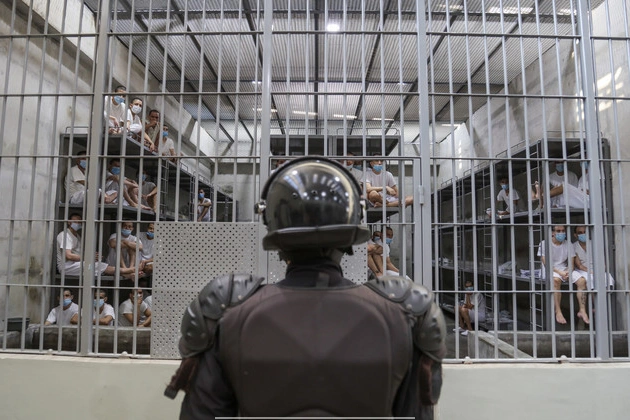
Recent revelations from US intelligence agencies have cast doubt on the Trump administration’s justification for using an antiquated law to deport Venezuelan men to a notorious prison in El Salvador. According to a newly released memo, intelligence agencies have determined that Venezuelan President Nicolas Maduro does not directly control the activities of the Tren de Aragua gang.
Undermining Trump’s Justification
The memo obtained by POLITICO from the Freedom of the Press Foundation contradicts President Trump’s assertion that the US is under invasion by a hostile foreign nation, allowing for the rapid deportation of suspected gang members without judicial review. The National Intelligence Council’s memo suggests that while Tren de Aragua may exploit the lawlessness in Venezuela under Maduro’s regime, it does not have explicit ties to the government.
Challenging Trump’s Narrative
Contrary to Trump’s depiction of Tren de Aragua as a major national security threat, the intelligence agencies found that the gang primarily engages in low-skill criminal activities with a decentralized structure. This challenges the administration’s narrative of Tren de Aragua as a significant criminal organization involved in human trafficking or migrant smuggling.
Consequences of the Memo
The release of the memo has raised questions about the administration’s handling of the deportation process and the accuracy of its claims regarding the gang’s activities. The memo’s findings have been corroborated by independent reporting from reputable sources like The New York Times and The Washington Post.
Legal Challenges and Repercussions
Legal challenges to Trump’s use of the Alien Enemies Act have resulted in setbacks for the administration, with courts ruling against swift deportations under the law. The Supreme Court’s decision to allow deported Venezuelans to challenge their removals individually has further complicated the administration’s deportation agenda.
Overall, the memo’s revelations have significant implications for the Trump administration’s immigration policies and raise concerns about the accuracy of its national security justifications. It highlights the importance of independent intelligence assessments in shaping immigration decisions.











